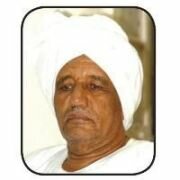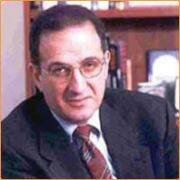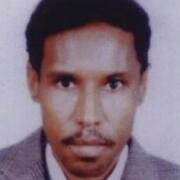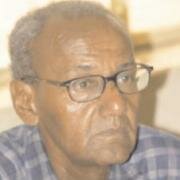I write to you from Om Sagata. It’s a village that lies in two semi-bows of hills, 105 KM to the South-East of Gedarif in Eastern Sudan.
This year, the autumn storm was so intense that it took off the roof of office and some classrooms that are now all flooded by the sun. People are busy working on their crops, and even a lot of students come after the sesame harvest. The opening of school clashes with the people's way of making survival possible. There is talk of adjusting the term times. The first week of school sees us preparing the school timetable, distribution of textbooks, and cleaning the school.
There are many complaints about teaching load as we make these preparations, due to a shortage of teachers. As Primary school teachers, we face conditions that are worse than the ones confronted by Chris Maclvour, a former Scottish teacher in Dongola. There, he wrote:" A Bend in the Nile". The deterioration of teachers’ living situation impelled them to announce that one of their colleagues went on a hunger strike bearing in mind his closeness to an influential constitutional figure.
Their subterfuge raised a security concern and brought a temporary food subsidy. We didn't only suffer a scarcity of food, but also lack of school hygiene and sanitation. Tawfiq seemed crazy but not completely insane. He ran errands for teachers. Tawfiq explained an enigma of human excrement left in classrooms saying" someone is warning against an upcoming epidemic. He wants you raise an awareness." my colleagues laughed. It was a scene reminiscent of V.S Naipaul novel " A house for Mr. Biswas".
Here in the village we have no electricity so we rely on the little light provided either by torches or mobile phones. An access to Internet is very slow and interrupted. We get water from a pool named after a man called Hadal, meaning ‘black’. The water is muddy and spoils tea and milk with its colour that doesn't change. What worries me aren't the two wasp nests above my bed but the mosquitoes whose bites leave our bodies swollen. Our work at the end of rainy season is hard and needs tolerance. I hope to return to Gedarif, the nearest large town, by the end of October. I hope I can write something again.
The teachers' house overlooks a large hill below a brick wall with three rooms facing a bathroom. Near it there is an abandoned water pot, one of the plastic barrels we use to clean ourselves. We get up bored and depressed and social media cheers the atmosphere. In the daily morning assembly, with sleepy and lukewarm voices, students chant the national anthem. They then move into classrooms with doors filled with smell of animal waste and the squeals of bats, which are believed to cause asthma, and which discourage teachers from staying long. Breakfast is lentil.
Then, some dates and lemon juice quell hunger till sunset. Dinner comes with nightfall. It is Fatta: that, is, slices of bread mixed with oil and the hot water left from cooking beans. Once it is dark, we move very carefully to the market as a snake may be found on the way. We stay for some time chatting with different people in cafes and then we watch an outdoor T.V .There is no seats so we sit on the ground. As soon as the news is over we leave because of the unpleasant smell coming to nostrils from a closed butchery nearby. We go to bed, hoping that the next day will end with a different scent in the air and the enjoyment of a better life. Finally, some of us get back to Gedarif. After 3 hours of travelling, there has been a brief stop and search in a round-up of aliens. Our driver sped up to transport a critically ill woman but not trying to smuggle people as security in a pursuit thought, the security men apologized for disruption and frisking. Few minutes later, the journey to Gedarif ended in peace.
-
Focus: Attending Funeral of the Two-state Solution (5-5)Next >





